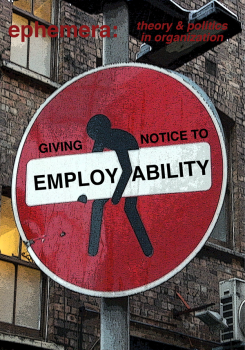Frances A. Yates: The Art of Memory (1966–) [EN, ES]
Filed under book | Tags: · history of science, magic, memory, mnemonics, mysticism, rhetoric

In this classic study of how people learned to retain vast stores of knowledge before the invention of the printed page, Frances A. Yates traces the art of memory from its treatment by Greek orators, through its Gothic transformations in the Middle Ages, to the occult forms it took in the Renaissance, and finally to its use in the seventeenth century. This book, the first to relate the art of memory to the history of culture as a whole, was revolutionary when it first appeared and continues to mesmerize readers with its lucid and revelatory insights.
Publisher Ark Paperbacks, an imprint of Routledge & Kegan Paul, London, 1966
ISBN 074480020X
400 pages
Frances Yates and the Mnemonic Works of Giordano Bruno (François Quiviger, Warburg Institute, includes Yates’ reconstruction of Bruno’s memory wheel from De Umbris Idearum)
The Art of Memory (English, 1966/1999)
El arte de la memoria (Spanish, trans. Ignacio Gómez de Liaño, 2005)
Ephemera Journal 13(4): Giving Notice to Employability (2013)
Filed under journal | Tags: · employment, labour, neoliberalism, work

“The neoliberal notion of employability has risen to prominence over the past 20 years, having been positioned as the crux of national, organizational and individual prosperity. To be employable, individuals are increasingly called upon to be self-reliant; aligning themselves to the conditions of an ostensibly fast-moving and precarious global economy. This special issue of ephemera calls attention to the way this current preoccupation with employability tethers questions of equality and human development to the instrumental capitalist obsession with growth and renewal. The 13 contributions to this issue ‘give notice’ to employability as a colonizing attribute of human resourcefulness that promotes marginalization, exploitation and stigmatization. By exploring the type of ‘self’ employability demands, and analysing the consequences of its required engagement, we hope employability will be both noticed and acted upon.”
Edited by Ekaterina Chertkovskaya, Peter Watt, Stefan Tramer and Sverre Spoelstra
Published in November 2013
Creative Commons Attribution-NonCommercial-NoDerivs 3.0 Unported License
ISBN 9781906948214
View online (HTML and PDF articles)
Comment (0)BAVO (eds.): Cultural Activism Today: The Art of Over-Identification (2007)
Filed under book | Tags: · activism, aesthetics, art, contemporary art

“Contemporary art seems to be caught in the blackmail typical for this self-acclaimed age of the End of History. On the one hand, the artist is elevated into ‘the One’ who relentlessly confronts society with its shortcomings and uses his creative intelligence to dream up new ideals. At the same time however, s/he is constantly reminded that this critical and utopian activity should remain ‘constructive’ – a coded way of saying that it should not fundamentally question the triumphant onward march of representative democracy and the free market. No wonder that art today threatens to be reduced to a purely empty exercise that, as Fukuyama claims, offers the last men an escape from their petty bourgeois existence.
The central question of Cultural Activism Today. The Art of Over-Identification is whether, and how, art can escape this suffocating situation. This volume argues that the key to a way out of the trap of the End of History lies in the strategy of over-identification. Instead of succumbing to society’s pathetic demand for small creative acts, artists should over-identify with the ruling, post-historical order and take the latter’s immanent laws to their most extreme, dystopian consequences.
By ruthlessly closing off any space for creative, utopian thinking – which today is nothing but a farce anyway – it should confront society with its own closure. This strategy of over-identification is assessed in essays by Boris Groys, Alexei Monroe, Dieter Lesage, Benda Hofmeyr and BAVO.”
Publisher episode publishers, Rotterdam, 2007
ISBN 9059730615, 9789059730618
119 pages
Review (Eva Fotiadi, OPEN)
PDF (no OCR, updated on 2024-2-19)
Comment (0)
